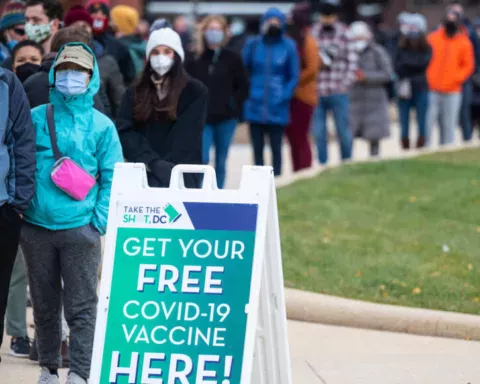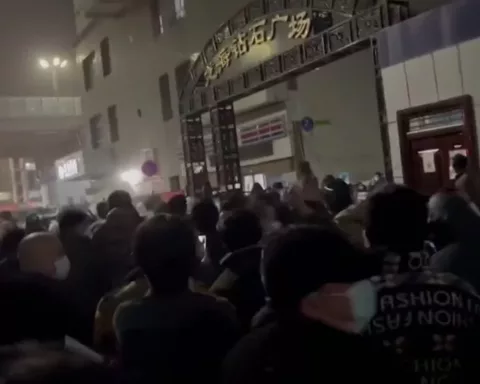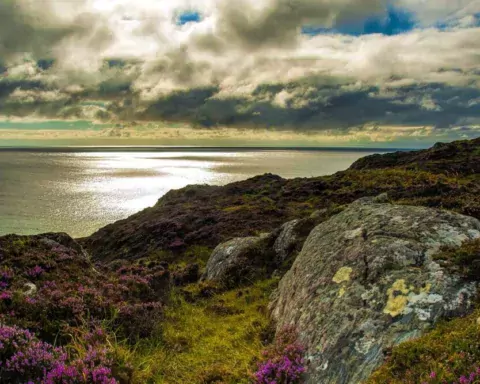COVID-19 cases, hospitalizations, and deaths are high across the United States. To decrease your chance of getting and spreading COVID-19, CDC recommends that you do not gather with people who do not live with you at this time. Attending events and gatherings increases your risk of getting and spreading COVID-19. Stay home to protect yourself and others from COVID-19.
Large gatherings bring together many people from multiple households in a private or public space. Large gatherings are often planned events with a large number of guests and invitations. They sometimes involve lodging, event staff, security, tickets, and long-distance travel. CDC’s large events guidance might apply to events such as conferences, trade shows, sporting events, festivals, concerts, or large weddings and parties.
Safer Ways to Celebrate Graduations and End of Year School Events
Attending gatherings to celebrate graduations and other end of the school year events increases your risk of getting and spreading COVID-19. The safest way to celebrate this year is virtually, with people who live with you, or outside while taking prevention measures. For information about what fully vaccinated people can do, visit the When You’ve Been Fully Vaccinated page.
- Decorate your home with school photos and graduation messages.
- Host a video chat party with family and friends to share in the celebration.
- Dress up and have a small outdoor celebration with everyone at least 6 feet apart and wearing masks.
- Organize safely distanced drive-in or drive-through celebrations for those who are graduating.
- Create a celebration video to share with family and friends.
- Hang graduation yard signs in your community.
Travel to Large Gatherings
Travel may increase your chance of spreading and getting COVID-19. CDC recommends delaying travel until you are able to get fully vaccinated. If you travel, you should still take steps to protect yourself and others. You will still be required to wear a mask on public transportation. If you are considering traveling for a large gathering, visit CDC’s Travel page to help you decide what is best for you and your family.
Steps Everyone Can Take to Make Large Gatherings Safer
The more steps you can take, the safer you will be at the gathering. No one measure is enough to prevent the spread of COVID-19.
Wear a mask
- Wear a mask with two or more layers to stop the spread of COVID-19 to protect yourself and others.
- Wear your mask over your nose and mouth, secure it under your chin, and make sure it fits snugly against the sides of your face.
- In cold weather, wear your mask under your scarf, ski mask, or balaclava.
- Keep a spare mask in case your mask becomes wet from moisture in your breath or from snow or rain.
Stay at least 6 feet away from people who do not live with you
- You are more likely to get or spread COVID-19 when you are in close contact with people who don’t live with you.
- Remember that people without symptoms or with a recent negative test result can still spread COVID-19 to others.
- Choose safer outdoor venues if possible.
- Choose venues that limit seating and allow for social distancing and select your seat or place to stand based on your ability to stay at least 6 feet from others.
- Arrive to the event early or at off-peak times to avoid crowding and congested areas.
- Avoid using restroom facilities or concession areas at high traffic times, such as intermission, half-time, or immediately after the event.
Avoid crowded, poorly ventilated indoor spaces
- As much as possible, avoid crowds and indoor spaces that do not offer fresh air from the outdoors.
You are less likely to get or spread COVID-19 during outdoor activities. Look for seating options that are outside or have proper ventilation with outdoor air, such as tents that have open doors or rolled up sides.
Wash your hands
- Wash hands often with soap and water for at least 20 seconds, after blowing your nose, coughing, or sneezing and before eating.
- If soap and water are not readily available, use a hand sanitizer that contains at least 60% alcohol. Bring extra hand sanitizer with you.
- Avoid touching your mask, eyes, nose, and mouth.
Get Vaccinated
- Authorized COVID-19 vaccines can help protect you from COVID-19.
- You should get a COVID-19 vaccine as soon as possible.
- Once you are fully vaccinated, you may be able to start doing some things that you had stopped doing because of the pandemic.
Safer Large Gatherings
Choose Safer Large Gatherings
Gathering virtually or with the people you live with is the safest choice.
Have a virtual gathering
- Attend a virtual concert or show with friends and family.
- Host a virtual family party or reunion.
- Watch a sporting event with people you live with.
- Attend online conferences instead of in person events.
- Attend a virtual religious ceremony or celebration.
If you do gather with people who don’t live with you, gatherings and activities held outdoors are safer than indoor gatherings.
- Attend an outdoor concert where attendees are wearing masks and staying 6 feet apart.
- Watch an outdoor sporting event where you are seated more than 6 feet away from others.
- Attend a front yard neighborhood BBQ where each neighbor gathers in his or her yard and brings his or her own food.
- Attend a drive-in event.
Know public safety measures in place at the venue
- Check with the organizer or event venue for updated information about any COVID-19 safety guidelines.
- Choose events that take place outside with enough space for attendees to stay at least 6 feet apart.
- Use touchless payment methods and ticketing apps. If not possible, exchange cash, card or tickets by placing payment in a receipt tray, if available, or on the counter.
Follow food safety measures
- Eat outdoors, if possible. You are less likely to get or spread COVID-19 during outdoor activities.
- Wear masks at all times except when you are actively eating or drinking. Masks help protect both you and those around you.
- Limit alcohol consumption. Consuming alcohol may make you less likely to follow COVID-19 safety measures.
- Minimize the time you spend in the restaurant, bar or concession area. The longer you stay, the more you increase your risk.
- Bring your own food, drinks, plates, cups, utensils, and condiment packets, if possible.
- Use single-use options, like salad dressing and condiment packets, and disposable items like food containers, plates, and utensils.
- Avoid self-serve and buffet style food options.
- Use a touchless garbage can, if available.
What to do if You Become Sick after Attending a Large Gathering
- Get tested for COVID-19. You can visit your state or health department’s website to look for the latest local information on testing.
- Know when to quarantine. Attending a large gathering or event increases your chance of being in close contact with people outside your household and being exposed to COVID-19. If you had close contact with people you don’t live with:
- Stay home for 14 days after your last contact with a person who has COVID-19.
- Watch for fever (100.4°F), cough, shortness of breath, or other symptoms of COVID-19.
- If possible, stay away from others, especially people who are at higher risk for getting very sick from COVID-19.
- People who have been in close contact with someone who has COVID-19 are not required to quarantine if they have been fully vaccinated against the disease and show no symptoms.






